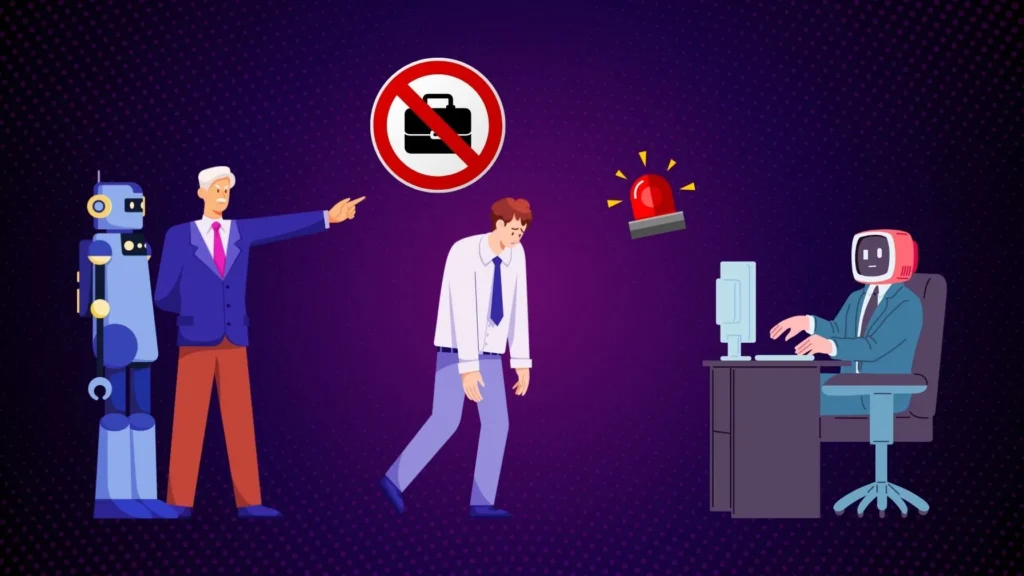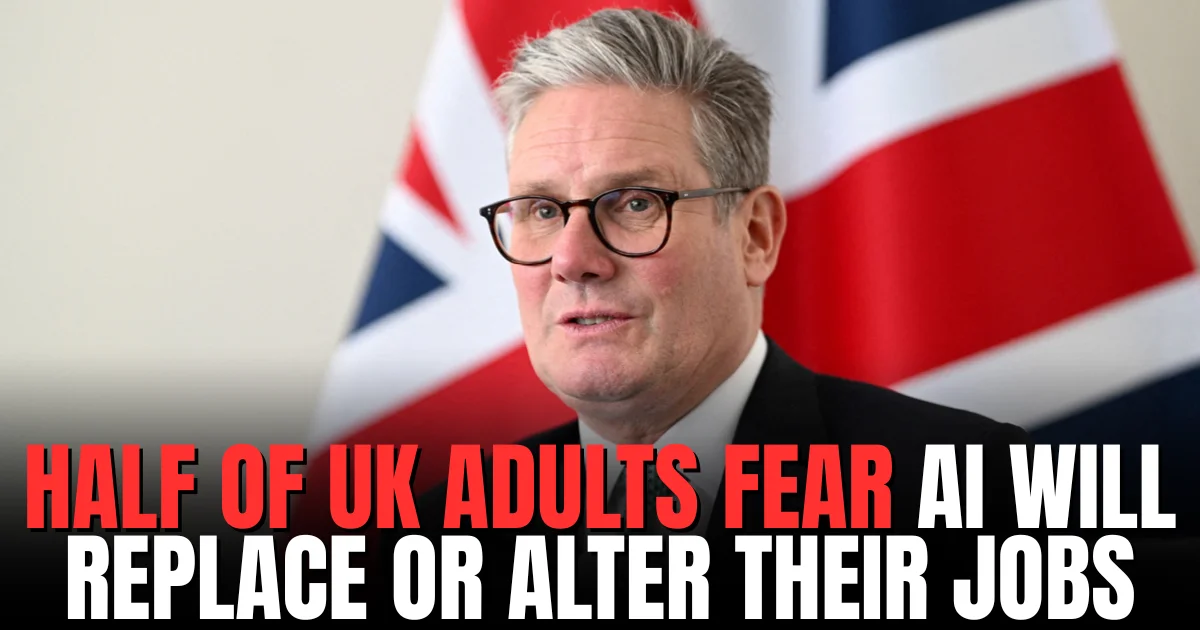A new TUC poll finds that 51% of UK adults are worried AI could replace or change their jobs. Experts call for government action, worker training, and stronger AI regulations to protect employment.
Table of Contents
Half of UK Adults Worry AI Will Take or Alter Their Job, Poll Finds
Introduction
Artificial Intelligence (AI) is rapidly reshaping industries worldwide, but it’s also triggering widespread concern among workers. A recent Trades Union Congress (TUC) poll reveals that 51% of UK adults fear AI could replace or alter their jobs in the coming years. As major companies like Amazon, Microsoft, and BT continue to invest in automation, workers are demanding stronger government intervention, skill development programs, and protections against potential job losses.
In this detailed report, we explore the poll findings, the impact of AI on the UK job market, and what measures are being proposed to safeguard workers’ rights and future employment.
AI’s Impact on UK Jobs: What the TUC Poll Reveals
The TUC poll, conducted among 2,600 UK adults, highlights growing anxiety about AI’s effect on employment:
- 51% fear AI could replace or modify their roles.
- 62% of workers aged 25-34 are especially worried.
- 50% want a say in how AI is deployed at workplaces.
- Only 17% oppose employee involvement in AI decisions.
This survey comes at a time when job insecurity is at its highest since 2018, fueled by economic slowdown, rising automation, and workplace restructuring.
Why UK Workers Are Concerned About AI
Workers’ fears aren’t unfounded. Leading global employers, including BT, Amazon, and Microsoft, have already hinted at potential job cuts due to AI-driven efficiencies. While AI promises to improve productivity, its rapid integration into the workforce creates uncertainty over job security, salaries, and workplace conditions.
Key Concerns Among Workers:
- Job Displacement: Automated systems replacing roles in retail, banking, and customer service.
- Changed Job Responsibilities: Human roles evolving into AI-assisted functions, requiring new skills.
- Lack of Government Oversight: Fear that businesses, not policymakers, will dictate AI’s future.
- Widening Income Gaps: AI-driven productivity could increase corporate profits but leave workers behind.

AI and the UK Job Market: The Bigger Picture
The UK’s unemployment rate has risen to 4.7%, a four-year high. While experts claim the slowdown isn’t solely caused by AI, there’s no denying that automation is reshaping the labor market.
Sectors most affected include:
| Industry | AI Risk Level | Potential Impact |
|---|---|---|
| Customer Support | High | Automated chatbots replacing call center staff |
| Retail & E-commerce | High | Cashier and inventory jobs automated |
| Banking & Finance | Medium | AI-powered risk assessment replacing analysts |
| Healthcare | Low to Medium | AI assisting diagnostics but not replacing doctors |
| IT & Software | Mixed | Developers need AI skills to stay relevant |
This shift suggests a future where reskilling will become critical for career survival.
TUC’s Call for Action: Worker-Centric AI Policies
The Trades Union Congress is urging the UK government to involve workers and trade unions in shaping AI policies. Their demands include:
- Stronger Regulations: Companies must disclose how AI impacts employees.
- Digital Dividends: Workers should share in productivity gains achieved through AI.
- Skill Development: Public funding for training programs to reskill displaced workers.
- Worker Representation: Employees should have a say in AI deployment at workplaces.
According to Kate Bell, TUC’s Assistant General Secretary:
“AI could have transformative potential, and if developed properly, workers can benefit from the productivity gains. But left unmanaged, AI could entrench rampant inequality as jobs are degraded or displaced.”

Public Opinion: Should Workers Control AI Deployment?
Interestingly, the TUC survey reveals that half of UK adults (50%) want to actively participate in deciding how AI is used in workplaces and the economy.
This growing demand for employee-driven AI governance signals a cultural shift — workers no longer want corporations to have full control over automation decisions.
The Road Ahead: Balancing AI Innovation and Job Security
AI is undeniably here to stay, but how it’s implemented will determine whether it creates opportunities or deepens inequality. Experts suggest three critical steps:
- Upskilling & Reskilling – Workers must acquire AI-friendly skills to remain relevant.
- AI Governance Policies – Governments need to regulate AI adoption in industries.
- Ethical AI Practices – Employers must prioritize human welfare over profit-driven automation.
If executed responsibly, AI could improve productivity, enhance public services, and create entirely new job categories. Without proper safeguards, however, the risk of job losses, stagnant wages, and social unrest will rise significantly.
FAQs
1. How many UK adults fear losing their jobs to AI?
According to the TUC poll, 51% of UK adults are concerned that AI could replace or change their roles.
2. Which age group is most worried about AI job losses?
Workers aged 25 to 34 are the most concerned, with 62% expressing fears about AI’s impact on employment.
3. What does the TUC recommend to protect UK jobs?
The TUC calls for worker representation, AI regulation, skill training, and ensuring employees share in productivity gains.
4. Which sectors are most affected by AI in the UK?
Customer service, retail, and financial services face the highest risk of automation, while healthcare and IT are evolving rather than disappearing.
5. Can AI create new jobs instead of replacing them?
Yes. While AI will automate many tasks, it’s also expected to create roles in AI development, cybersecurity, robotics, and data analytics.
